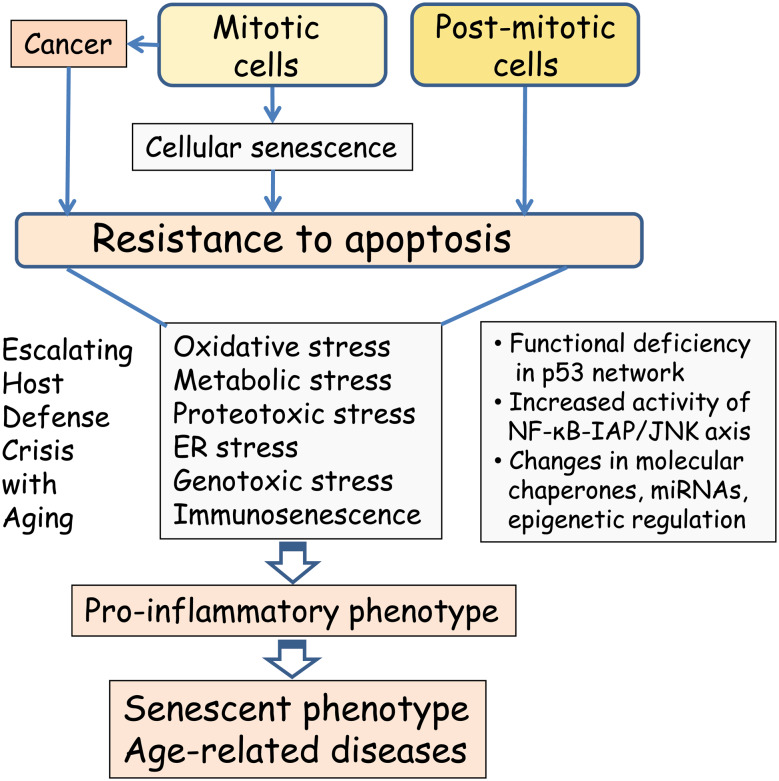Fig. 2.
Increased resistance to apoptosis escalates the age-related host defense crisis. Persistent types of stress, e.g., oxidative, proteotoxic, and genotoxic stresses, enhance the cellular resistance to apoptosis leading to the survival of unfit, sublethally damaged cells that display a pro-inflammatory phenotype. The molecular basis of increased resistance to apoptosis involves several mechanisms, e.g., (1) functional deficiency in the p53 network, (2) increased activity in the NF-κB-IAP/JNK axis, and (3) changes in molecular chaperones, microRNAs, and epigenetic regulation. Mitotic cells can also undergo carcinogenesis, which also involves increased resistance to apoptosis but not the host defense crisis. the pro-inflammatory phenotype accelerates the aging process and aggravates age-related degenerative diseases

